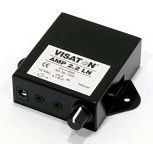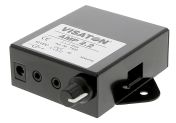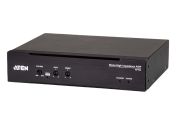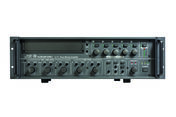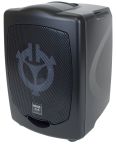Amplifiers
A power amplifier, sometimes called a power amp or hi-fi amplifier, is an electronic devices that takes a low power audio signal and reproduces it at a much stronger level. For example, the signal from a microphone or instrument is amplified to a level that is strong enough to drive speakers, sound systems or headphones. They can also provide power to passive speakers.
In the most basic terms, power amplifiers increase the power of a signal, making it stronger that the original input. Power amplifiers can also provide power to passive
speakers.
Classes:
• Class A power amplifiers conduct during the full cycle or have a conducting angle of 360 degrees. These amplifiers are the simplest and most common devices because of low signal distortion level.
• Class B power Amplifiers, unlike Class A, work for only half of each input cycle, which means they have a conducting angle of 180 degrees. In simple words, these amplifiers amplify only half of the input cycle. On paper, that probably sounds unusable, but in reality, it's quite different. A Class B amplifier consists of a positive and negative transistor, which run alternatively, amplifying the positive and negative cycle respectively. In the end this is combined to form a full output cycle.
• Class AB is the mixture of both classes, so the conduction angle is somewhere around 180 and 360 degrees, commonly shown as 270 degrees.
• Class C power amplifiers are the most efficient but have the lowest operating cycle and linearity. It is heavily biased and stays on for less than half of an input cycle. It has a conducting angle somewhere around the 90 degrees. This results in the high efficiency mentioned above but can also cause high distortion in the output signal. Class C amplifiers are usually not used as audio amplifiers. They can be used in certain radio frequency applications where efficiency is key.
• Class D power amplifiers aren't always considered among the four mentioned above. They are a non-linear switching amplifier in which two transistors function as switches instead of linear gain devices. Class D power amplifiers convert the analogue input signal into digital via pulse width modulation, pulse density modulation or something similar, before being amplified. The end result is a cycled output with high efficiency and gain, alongside minimal distortion. Although this type of power amplifier was originally used to control motors, they are now used as audio power amplifiers as well.

